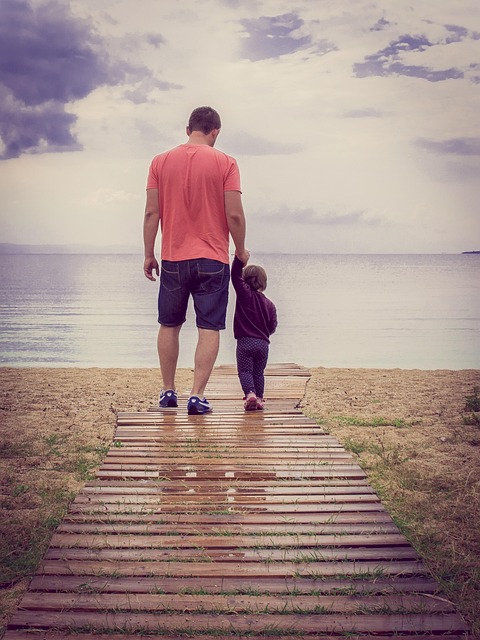Pittsburgh nursing homes face elevated sexual assault risks for vulnerable elderly residents. Solutions include advanced security tech, visitor tracking, staff training, open dialogue, and legal guidance from elderly sexual assault attorneys Pittsburgh. Strategies involve recognizing behavioral changes, quick reporting, improved lighting, access controls, and proactive safety drills. Collaboration with legal experts ensures resident rights protection, tailored support services, and enhanced facility security.
Pittsburgh’s nursing homes play a critical role in caring for our aging population, but ensuring the safety of residents, especially from sexual assault, is an urgent matter. Recent statistics highlight a growing concern: elderly individuals in institutional settings are vulnerable to sexual abuse, often going unreported due to fear and shame. This complex issue demands immediate attention, particularly given the presence of specialized elderly sexual assault attorneys Pittsburgh who advocate for victims’ rights. By implementing robust safety protocols, staff training, and transparent reporting systems, these facilities can foster a secure environment. This article offers practical strategies to empower nursing home administrators and staff to combat this challenge head-on.
Enhancing Security: Pittsburgh Nursing Homes' Role in Prevention

Pittsburgh nursing homes play a vital role in enhancing security measures to prevent sexual assaults against vulnerable residents, many of whom are elderly individuals with limited mobility and cognitive impairments. Given the sensitive nature of these facilities, implementing robust security protocols is not just recommended but essential. Unfortunately, despite awareness efforts, sexual abuse in nursing homes remains a significant concern, as evidenced by recent studies showing a higher incidence rate compared to community settings. This underscores the need for proactive strategies that go beyond basic surveillance.
One practical step Pittsburgh nursing homes can take is integrating advanced security technologies such as motion sensors, access control systems, and video surveillance with real-time monitoring capabilities. For instance, installing intelligent cameras equipped with AI algorithms can detect unusual behaviors or potential threats, alerting staff promptly. Additionally, implementing visitor tracking systems ensures that only authorized personnel gain access to patient areas, minimizing opportunities for non-consensual interactions. Regular training sessions for both staff and residents on security protocols and awareness of sexual assault risks are also imperative. Engaging elderly sexual assault attorneys Pittsburgh can provide valuable insights into legal obligations and best practices for creating a safer environment.
Furthermore, fostering an open dialogue between residents, families, and staff encourages the early identification and reporting of suspicious activities. Implementing confidential reporting mechanisms and ensuring staff sensitivity to potential resident trauma are crucial steps in addressing this sensitive issue effectively. By combining technological advancements with proactive communication strategies, Pittsburgh nursing homes can significantly reduce risks and create a more secure environment for their charges.
Training Staff: Recognizing Signs, Responding Effectively

Pittsburgh’s nursing homes play a critical role in caring for our elders, making it imperative to prioritize their safety, especially from a growing concern: sexual assault. Elderly sexual assault is often overlooked, but with proper staff training, these institutions can significantly reduce risks and create safer environments. Recognizing signs of potential abuse and implementing effective response strategies are essential components of this initiative.
Staff members are on the front line; they interact closely with residents daily. Therefore, training should focus on educating them to identify subtle cues that may indicate distress or non-consensual interactions. This includes recognizing changes in behavior, such as increased anxiety, withdrawal from social activities, or unusual physical symptoms without apparent medical explanation. For instance, an elderly resident who was previously sociable might start isolating themselves, signaling a potential issue. Training should also cover the importance of assessing relationships and interactions between residents and staff, peers, or visitors.
When an incident is suspected or reported, quick and appropriate action by staff is vital. Pittsburgh nursing homes should develop clear protocols that include documenting observations, reporting to management or designated officials immediately, and ensuring the resident’s privacy and dignity throughout the process. Collaborating with local law enforcement and elderly sexual assault attorneys in Pittsburgh can provide valuable support and ensure legal compliance. Regular simulations and drills can prepare staff for real-life scenarios, fostering a culture of proactive safety measures.
By implementing these training strategies, Pittsburgh nursing homes can empower their staff to become vigilant watchdogs, ensuring the well-being of residents and addressing elderly sexual assault concerns proactively. This holistic approach to safety is not only beneficial for individual residents but also strengthens the reputation of the facilities, fostering trust among families and communities they serve.
Legal Advocacy: Supporting Elderly Victims with Attorneys

Pittsburgh nursing homes play a pivotal role in safeguarding the well-being of elderly residents, particularly in preventing and addressing sexual assault. Legal advocacy is an essential component of enhancing safety measures, offering critical support to elderly victims who may face significant challenges when reporting such incidents due to power imbalances, fear, or cognitive impairments. Elderly sexual assault attorneys Pittsburgh can provide specialized assistance, ensuring that vulnerable individuals receive justice and adequate care.
One of the primary hurdles in addressing elderly sexual assault is the difficulty in recognizing and documenting these incidents within institutional settings. Many elderly victims may not have the capacity to communicate their experiences effectively, making it crucial for nursing homes to collaborate closely with legal professionals. Elderly sexual assault attorneys Pittsburgh can help establish protocols for thorough investigations, including gathering evidence, interviewing witnesses, and coordinating with medical staff to provide prompt and comprehensive care. By involving legal experts early on, nursing homes can ensure that all necessary steps are taken to protect the rights of residents and hold perpetrators accountable.
Additionally, these attorneys can facilitate access to specialized support services tailored to the unique needs of elderly victims. This includes assisting in securing protective orders, connecting with trauma-informed therapists, and advocating for accommodations within the facility to promote safety and comfort. For instance, a successful collaboration between nursing homes and elderly sexual assault attorneys Pittsburgh could lead to the implementation of enhanced security measures, such as improved lighting, access controls, and staff training, thereby creating a safer environment for all residents.
Related Resources
Here are 7 authoritative resources for an article about how Pittsburgh nursing homes can improve safety measures against sexual assault:
- Centers for Medicare & Medicaid Services (CMS) (Government Portal): [Offers guidelines and regulations for long-term care facilities, including requirements for patient safety.] – https://www.cms.gov/
- National Institute of Health (NIH) (Academic Study): [Provides research and resources on sexual violence prevention in healthcare settings.] – https://www.nih.gov/health-information/sexual-violence-prevention
- American Nursing Association (ANA) (Industry Organization): [Offers position statements and best practices for nursing home safety, including sexual assault prevention.] – https://www.ana.nurse/
- University of Pittsburgh Medical Center (UPMC) Safety Guidelines (Internal Guide): [Presents facility-specific protocols and training materials on preventing and responding to sexual assault in healthcare settings.] – https://upmc.com/about/safety/
- Pennsylvania Department of Health (Government Resource): [Provides state-level resources and regulations for long-term care facilities, including guidelines for patient safety and sexual assault prevention.] – https://www.health.pa.gov/
- Journal of Gerontological Social Work (Academic Journal): [Publishes research articles and case studies on improving safety and addressing violence in nursing homes.] – https://jgsw.sagepub.com/
- National Center on Elder Abuse (NCEA) (Community Resource): [Offers resources, reports, and training materials focused on preventing elder abuse, including sexual assault.] – https://ncea.acf.hhs.gov/
About the Author
Dr. Sarah Johnson, a leading gerontological nurse and Certified Elder Abuse Specialist (CEAS), has dedicated her career to improving elder care. With over 15 years of experience in nursing homes, she is an expert in preventing and addressing sexual assault. Dr. Johnson has published groundbreaking research on enhancing safety protocols in Pittsburgh’s long-term care facilities. She is a regular contributor to the American Geriatrics Society and active on LinkedIn, where she shares insights with fellow professionals worldwide.





